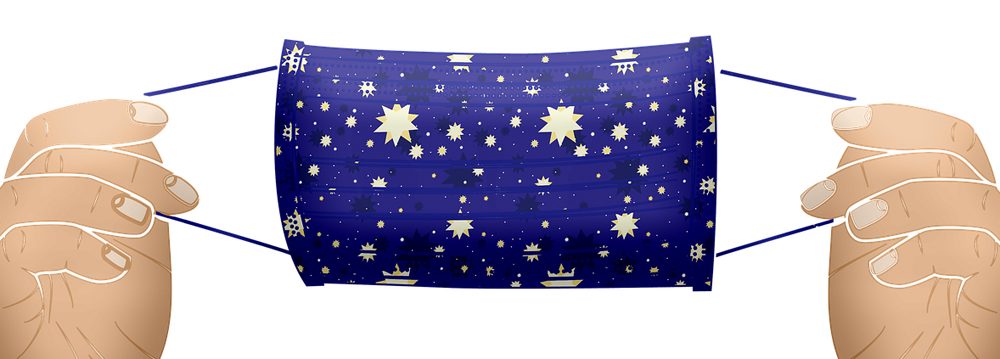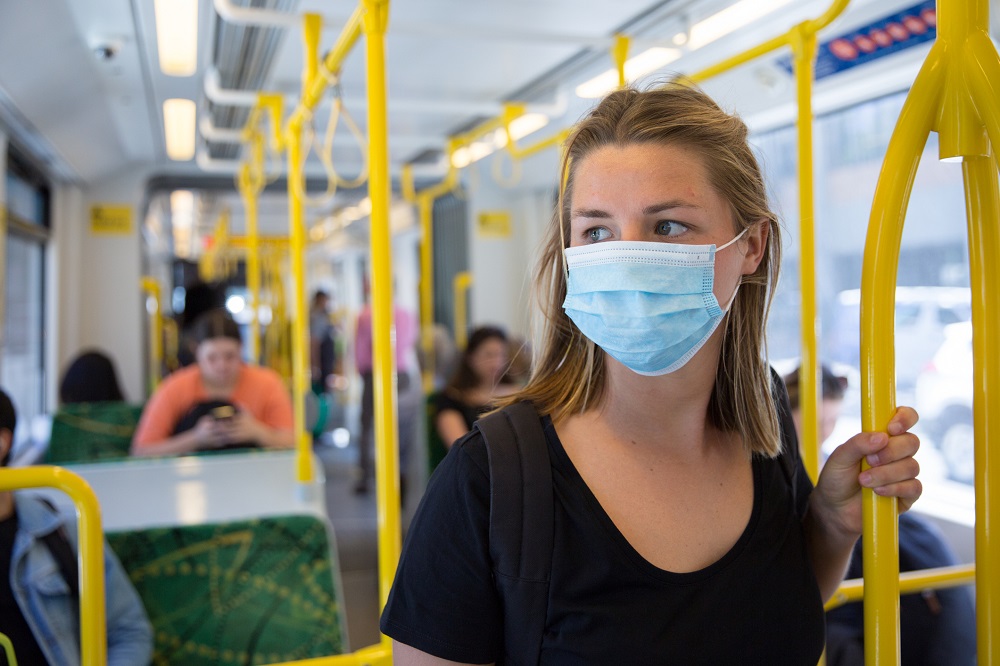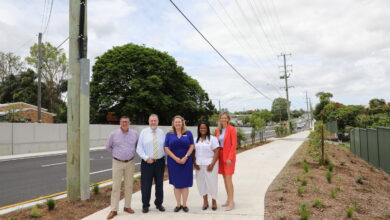Face masks are being worn more and more out in the community to help protect people from COVID-19.
Chief Health Officer Dr Jeannette Young suggests if you are in a public space and you can’t maintain social distancing or in indoor situations like public transport or ridesharing, that is the time to consider wearing a mask.
Hospitals in areas impacted by the recent COVID-19 cluster have implemented the use of Personal Protective Equipment (PPE).
All staff, patients and visitors are required to wear a single-use surgical mask.
According to Queensland Health face masks can be a useful measure to help control sustained community transmission.
But Dr Young said as we do not have sustained community transmission in Queensland she will not be legislating the compulsory use of masks at this stage.
How to wear a mask
- Clean your hands with soap and water or alcohol-based hand rub (made up of over 60 per cent alcohol or 70per cent isopropanol) before you put on your mask.
- Hold the mask by its tapes or loops, then tie the mask around your head or put the loops around your ears.
- Make sure the mask completely covers your mouth and nose, and that there are no gaps between your face and the mask. If you are using a surgical mask, press the nose piece around your nose.
If using a mask with ear loops, use a plastic clip or tie to join the ends together at the back of the head to make sure it fits securely on your face.
Make sure that the mask does not have holes or a valve, as if you have COVID-19, you can breathe out the virus.
Do not touch your eyes, nose, or mouth or the front of the mask while wearing it.
If the mask gets soiled or damp, replace it with a new one.
Face masks are useful but by themselves they won’t protect you from COVID-19. The advice is still to keep washing your hands, keep up social distancing, stay home if you are unwell and get tested even if you only have mild symptoms.
For more information on face masks, visit the Queensland Government official page.
Read also:

You can make your own cloth mask. Use this helpful ‘how to’ by the Department of Health on how make a face mask.



Just a note: As a public servant, Dr Young can’t legislate anything. This is the responsibility of the elected government. The relevant minister draws up a Bill and introduces it to parliament for debate.
Once the government gets the Bill through all stages in Parliament, it is sent to the Governor for royal assent (agreement by the Queen’s representative). When assent is given, the Bill becomes the law and then, instead of being called a Bill, it is described as an Act of Parliament.